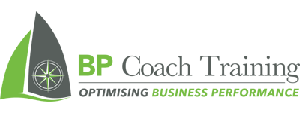Recently, Straits Times published an article on the “10 most important job skills in demand by employers“. Individuals whose livelihood have been affected by the COVID-19 situation will find this an interesting read. Perhaps it is a good time to reflect and identify those job skills required.
Job Skills in Demand
The 10 most important job skills listed in the article are:
- Data Literacy
- Critical Thinking
- Tech-Savviness
- Adaptability and Flexibility
- Creativity and Innovation
- Emotional Intelligence
- Cultural Intelligence and Diversity
- Leadership Skills
- Judgement and Complex Decision-Making
- Collaboration and Team Working Skills
From an employer’s standpoint, finding the ideal candidate with these skills has always been a challenge. In fact, it is almost impossible. On the other hand, sending employees for these skills training seems to have little impact. The employees may come back equipped with the knowledge but are not applying the skills! Sometimes it could be a timing issue or the lack of opportunity to hone these skills.
Role of Employers and Leaders
What can employers do to overcome these challenges? Instead of just demanding employees to have these job skills, reflect on your organisational culture. What type of culture does your organisation have today? Does the organisation promote a learning culture? Do the leaders in the organisation spend time to develop the employees? Are employees encouraged to take risk and experiment with new ideas? After all, culture is about “doing what I see” in the organisation.
To build a high performance culture, leaders need to be equipped with coaching skills. When leaders are able to coach, they can help the employees develop those job skills listed. We are not talking about the long coaching sessions with employees. Rather, if leaders can find coachable moments (also known as “in-the-moment coaching) to develop the employees’ capabilities, it would be far more effective.
Coachable Moments
Coachable moments happen when the leader look for opportunities to coach the employee to think creatively and make difficult decision. For example when an employee presents a challenging client situation to the leader. The easiest way for the leader is to instruct the employee on what to do. When that happens, the opportunity to develop the employee skill disappears. On the other hand, if the leader takes that moment to ask powerful questions to help the employee think and develop their own solutions, that is a coachable moment. Over time, employees would be able to self-coach, think creatively and make decisions on their own.

When an employee is not emotionally aware or not collaborating well with others, the leader can help to create awareness. Creating awareness is yet another competency within the coaching framework. It is important to understand that coaching is a facilitation process rather than sharing knowledge or experience with the employee.
Transformational leaders can help employees develop at least 8 out of 10 (except data literacy and tech-savviness) job skills listed above. Remember that these leaders are in constant touch with the employees on a daily basis. What better way to develop employee skills than by leveraging on this coachable moments approach.
Written by Laurence Tan (Leadership Coach/Trainer and Author)
Director, BP Coach Training Pte Ltd



